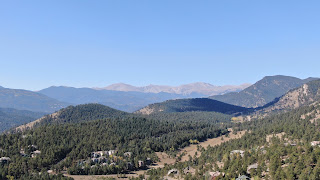The Crash of Airbnb Properties: What’s Really Happening in the Short-Term Rental Market?
The Crash of Airbnb Properties: What’s Really Happening in the Short-Term Rental Market?
📉 Are We Witnessing the Airbnb Bubble Burst?
The short-term rental market, once a gold rush for real estate investors, is now showing signs of a major correction. Airbnb properties, especially in oversaturated and highly regulated markets, are experiencing sharp declines in occupancy rates, profitability, and investor enthusiasm.
From high acquisition costs to increased regulations and dwindling demand, the Airbnb model no longer guarantees easy returns. But is it a crash, a correction, or just the next phase in an evolving asset class?
🔍 What’s Driving the Crash?
1. Oversupply of Short-Term Rentals
Airbnb saw explosive growth between 2019 and 2022, especially in vacation hotspots like:
- Southwest Florida (Naples, Fort Myers, Cape Coral)
- Colorado mountain towns (Breckenridge, Vail, Evergreen)
- Coastal markets (San Diego, Miami, Charleston)
- International hotspots (Tulum, Lisbon, Bali)
This led to an oversupply of properties. In some cities, short-term rentals now outnumber available long-term units, flooding the market and driving down nightly rates.
Example: In 2021, a 3-bedroom in Naples could pull in $300+/night. In 2025, many are struggling to fill at $200/night, even in peak season.
2. Declining Occupancy Rates
Data from AirDNA and Mashvisor show occupancy rates declining 10–30% YoY in many markets. Contributing factors:
- Increased competition
- Travel inflation (cost of airfare, rental cars, etc.)
- Consumer belt-tightening
- More travelers seeking hotels again (especially for amenities + reliability)
3. Rising Operational and Ownership Costs
Airbnb profits are eroding due to:
- Higher mortgage rates (7%+ vs. 3% just a few years ago)
- Insurance costs skyrocketing, especially in hurricane- or wildfire-prone areas
- Cleaning fees, maintenance, HOA assessments, and platform fees
- Property taxes, which have surged in markets like Florida, Texas, and Arizona
In high-cost areas, many owners are now operating at break-even or a loss.
4. Local Regulations and Restrictions
Cities are cracking down on STRs (short-term rentals) due to housing shortages and complaints from residents. Common new rules include:
- Licensing requirements
- Nightly rental caps
- Occupancy limits
- Zoning changes
- Heavy fines for violations
Florida, New York, California, and even small mountain towns in Colorado have implemented or proposed sweeping Airbnb restrictions.
5. Fewer Buyers, More Sellers
Investor demand for Airbnb properties is falling fast. Redfin and Zillow have reported:
- Up to 60% decline in STR investor purchases from 2022 peak
- More Airbnb owners listing properties for sale, especially in saturated areas
- Listings with Airbnb potential sitting longer on the market or getting repriced
This is compounding the decline, as more inventory floods the market, hurting resale values.
💸 Real Numbers: How Bad Is It?
Metric2022 Avg.2025 Avg.% ChangeOccupancy Rate75–60%-20%Avg. Daily Rate (Florida)$275$190–220-25%Property Taxes (Cape Coral)$4,800/year$7,200/year+50%Insurance (Naples SFH)$2,200/year$5,500/year+150p Rate (STRs)6–8%3–5% (real)↓
Note: Figures vary by region but reflect national trends.
🧠 Are Airbnb Properties Still a Good Investment?
That depends on your goals, location, and timeline. The days of buying any home, throwing it on Airbnb, and watching cash flow roll in are over.
Who’s still making money?
- Owners in unique properties or experiences
- STRs with low acquisition costs or bought pre-2021
- Hosts with 5-star reputations and repeat guests
- Properties in year-round tourist markets (but not overbuilt ones)
Who’s losing?
- Recent buyers who paid peak prices and financed at 6%+
- Owners in highly competitive, seasonal-only markets
- Investors without professional management or marketing
✅ Alternatives for Struggling Airbnb Owners
If your Airbnb numbers are falling, here are a few pivot strategies:
- Convert to long-term rental for stability
- Use mid-term rentals (30–90 day stays for traveling nurses, remote workers)
- Sell before property values adjust downward
- Partner with a professional property manager to improve visibility and reviews
- Use as hybrid personal + rental use to offset costs but still enjoy the property
🧭 The Airbnb Crash Is Real, But It’s Not Universal
This is a correction, not a full collapse. But it feels like a crash to investors who bought during the hype.
Markets will stabilize, but not all STR owners will survive. Real estate professionals, buyers, and current owners need to rethink assumptions about passive income, occupancy stability, and asset liquidity.
https://agentsgather.com/the-crash-of-airbnb-properties-whats-really-happening-in-the-short-term-rental-market/

Comments
Post a Comment